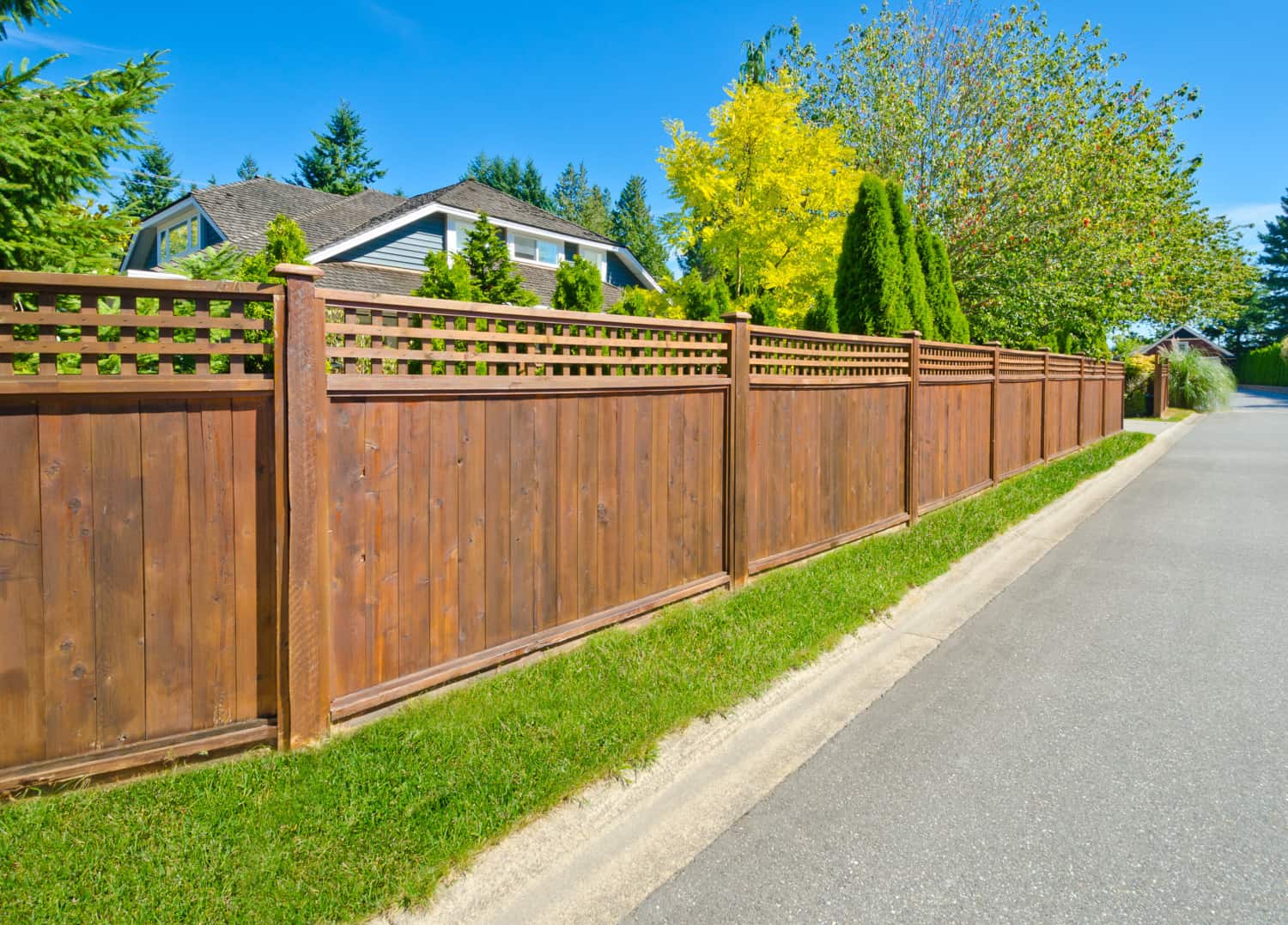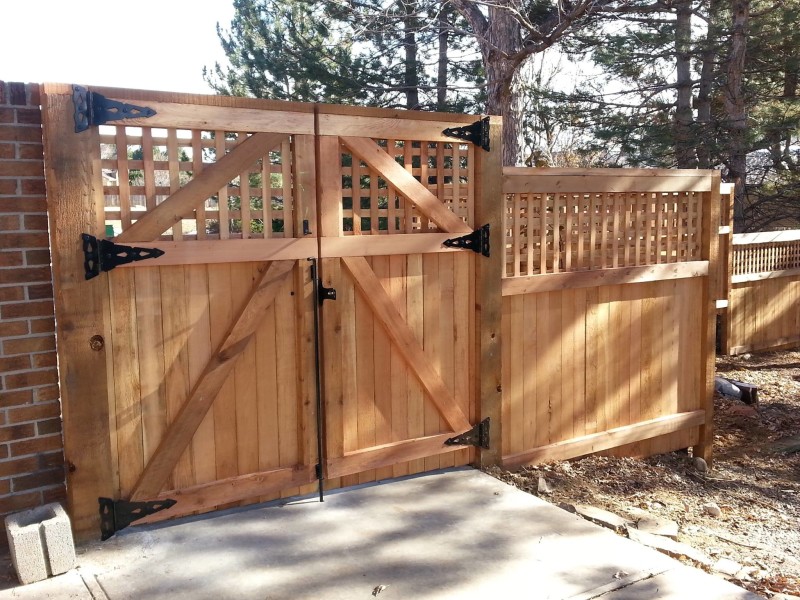Featured
Understanding the permit needs in your area is essential if you're considering installing a fencing around your building. While building a fence might look like a straightforward do it yourself job, a number of guidelines may govern its construction depending on where you live. Failing to obtain the correct authorizations can cause fines, charges, or also needing to get rid of the fencing completely. In this guide, we'll break down the different permits you might require to mount a fence and how to ensure your job stays certified with neighborhood legislations.
Why Are Permits Needed for Fence Installation? Permits are needed to make certain that the fence you build comply with neighborhood structure codes, zoning laws, and safety requirements. These authorizations are in location to secure your building, the residential or commercial properties around you, and the setting. They make sure that the fence will not block utilities, website traffic flow, or create risks for pedestrians. Furthermore, they help keep the visual and structural honesty of your neighborhood.
![]()
Kinds of Permits You Might Demand. Structure Authorization. A structure authorization is the most common need for mounting a fencing. This authorization makes certain that the framework you construct follow neighborhood security codes and regulations. If your fence exceeds a certain elevation (typically around 6 feet), you might need to obtain a building license. The neighborhood authorities will generally examine your plans to make sure that your fencing is secure and structurally sound.
Zoning Permit. Zoning regulations govern land usage in your location, and they commonly control where fences can be mounted, as well as how tall they can be. A zoning license makes certain that your fence follows these regulations. Your fencing may need to be set back a certain distance from pathways or building lines. Zoning regulations can vary by community, so it's important to examine the certain guidelines that put on your area.
Homeowners Organization (HOA) Authorization. You may need approval prior to installing a fence if your building is part of a property owners association. HOAs typically have stringent regulations pertaining to the kind, design, and materials utilized for fencings to keep a consistent look throughout the neighborhood. The HOA may require you to send in-depth strategies or request approval prior to installment. Ensure you comply with these standards to prevent prospective penalties or penalties.
Specialty Permits. Sometimes, you may require specialized permits based upon the place of your property or the nature of your fencing. For example, if your home remains in a disaster area, you might need additional permits to make certain that your fence does not obstruct drain or water flow. If you prepare to construct a fence near an environmentally safeguarded location, you may need an unique authorization to abide with environmental policies.
![]()
Utility Easements and Energy Business Authorizations. Some properties have utility easements, which are locations marked for utility cords, lines, or pipes. Prior to mounting a fence, you have to check if your residential property has an easement. Building a fence within an easement might disrupt energy upkeep or damages underground lines. You may need authorization from the utility firm or local authorities before waging the installation.
Exactly How to Establish Which Allows You Required. Check with Local Authorities. The initial action in identifying the licenses needed is to call your neighborhood structure department or zoning workplace. They can provide certain information concerning what permits are needed for your area. Lots of cities have on the internet sources or portals where you can inspect the demands or perhaps make an application for a permit online.
Consult a Specialist Fence Specialist. A local fence service provider is frequently acquainted with the license process and local regulations. They can assist you navigate the demands and make sure that your task is compliant. Numerous contractors likewise deal with the permit application process on your behalf, conserving you effort and time.
Evaluation Your Community's HOA Standards. If you live in an area regulated by an HOA, see to it to examine their guidelines prior to requesting any type of licenses. The HOA might need specific styles, products, or height constraints for fences within the neighborhood. Submit your plans to them for approval before proceeding.
![]()
Repercussions of Not Obtaining a Permit. Mounting a fencing without the required permits can cause major consequences. You might face penalties, be gotten to eliminate the fence, or be required to redesign the setup to satisfy code demands. On top of that, offering your home might be made complex if the fence doesn't meet local regulations. Potential purchasers may hesitate to acquire a property with an unpermitted fencing, particularly if it remains in offense of zoning regulations.
Verdict. Prior to installing a fence on your building, make certain you understand the regional policies and get any kind of required licenses. Structure licenses, zoning licenses, HOA authorizations, and specialty permits all play an important function in ensuring that your fence is safe, lawful, and certified.
Why Are Permits Needed for Fence Installation? Permits are needed to make certain that the fence you build comply with neighborhood structure codes, zoning laws, and safety requirements. These authorizations are in location to secure your building, the residential or commercial properties around you, and the setting. They make sure that the fence will not block utilities, website traffic flow, or create risks for pedestrians. Furthermore, they help keep the visual and structural honesty of your neighborhood.

Kinds of Permits You Might Demand. Structure Authorization. A structure authorization is the most common need for mounting a fencing. This authorization makes certain that the framework you construct follow neighborhood security codes and regulations. If your fence exceeds a certain elevation (typically around 6 feet), you might need to obtain a building license. The neighborhood authorities will generally examine your plans to make sure that your fencing is secure and structurally sound.
Zoning Permit. Zoning regulations govern land usage in your location, and they commonly control where fences can be mounted, as well as how tall they can be. A zoning license makes certain that your fence follows these regulations. Your fencing may need to be set back a certain distance from pathways or building lines. Zoning regulations can vary by community, so it's important to examine the certain guidelines that put on your area.
Homeowners Organization (HOA) Authorization. You may need approval prior to installing a fence if your building is part of a property owners association. HOAs typically have stringent regulations pertaining to the kind, design, and materials utilized for fencings to keep a consistent look throughout the neighborhood. The HOA may require you to send in-depth strategies or request approval prior to installment. Ensure you comply with these standards to prevent prospective penalties or penalties.
Specialty Permits. Sometimes, you may require specialized permits based upon the place of your property or the nature of your fencing. For example, if your home remains in a disaster area, you might need additional permits to make certain that your fence does not obstruct drain or water flow. If you prepare to construct a fence near an environmentally safeguarded location, you may need an unique authorization to abide with environmental policies.

Utility Easements and Energy Business Authorizations. Some properties have utility easements, which are locations marked for utility cords, lines, or pipes. Prior to mounting a fence, you have to check if your residential property has an easement. Building a fence within an easement might disrupt energy upkeep or damages underground lines. You may need authorization from the utility firm or local authorities before waging the installation.
Exactly How to Establish Which Allows You Required. Check with Local Authorities. The initial action in identifying the licenses needed is to call your neighborhood structure department or zoning workplace. They can provide certain information concerning what permits are needed for your area. Lots of cities have on the internet sources or portals where you can inspect the demands or perhaps make an application for a permit online.
Consult a Specialist Fence Specialist. A local fence service provider is frequently acquainted with the license process and local regulations. They can assist you navigate the demands and make sure that your task is compliant. Numerous contractors likewise deal with the permit application process on your behalf, conserving you effort and time.
Evaluation Your Community's HOA Standards. If you live in an area regulated by an HOA, see to it to examine their guidelines prior to requesting any type of licenses. The HOA might need specific styles, products, or height constraints for fences within the neighborhood. Submit your plans to them for approval before proceeding.

Repercussions of Not Obtaining a Permit. Mounting a fencing without the required permits can cause major consequences. You might face penalties, be gotten to eliminate the fence, or be required to redesign the setup to satisfy code demands. On top of that, offering your home might be made complex if the fence doesn't meet local regulations. Potential purchasers may hesitate to acquire a property with an unpermitted fencing, particularly if it remains in offense of zoning regulations.
Verdict. Prior to installing a fence on your building, make certain you understand the regional policies and get any kind of required licenses. Structure licenses, zoning licenses, HOA authorizations, and specialty permits all play an important function in ensuring that your fence is safe, lawful, and certified.
Latest Posts
Find the Premier Auto Repair Coupons in Montclare, Chicago
Published May 26, 25
1 min read
Uncover Montclare Auto Repair’s Highly Requested Car Care Solutions and Why Drivers Choose Them
Published May 25, 25
1 min read
Discover Your Financial Partner at WyHy – Top Benefits for Wyoming Residents
Published May 24, 25
1 min read
More
Latest Posts
Find the Premier Auto Repair Coupons in Montclare, Chicago
Published May 26, 25
1 min read
Uncover Montclare Auto Repair’s Highly Requested Car Care Solutions and Why Drivers Choose Them
Published May 25, 25
1 min read
Discover Your Financial Partner at WyHy – Top Benefits for Wyoming Residents
Published May 24, 25
1 min read